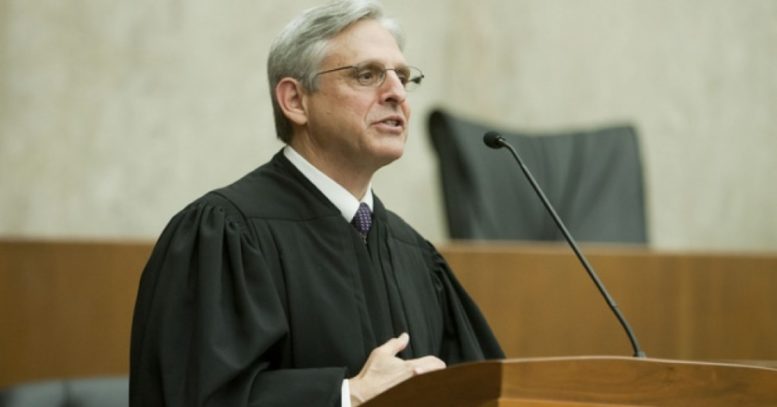 The power behind the throne in the Republican Party doesn’t want Donald Trump as the party’s nominee. Just listen to Sen. John McCain, Republican bigwig and 2008 party nominee for the White House, and you will understand how they feel.
The power behind the throne in the Republican Party doesn’t want Donald Trump as the party’s nominee. Just listen to Sen. John McCain, Republican bigwig and 2008 party nominee for the White House, and you will understand how they feel.
The pending battle between the elite of the Republican Party and the voice of many Republican voters who overwhelmingly are supporting Trump might well push Hillary Clinton right into the White House this coming November. A Republican inter-party war is taking shape, one that can destroy the party’s current identity and drive for the White House. Judicial nominations be aware.
Republican Senate Majority Leader Mitch McConnell has pledged not to hold hearings on any appointment by President Barack Obama to fill the current vacancy on the U.S. Supreme Court. He argues America must wait until the next President is sworn in January. Republicans are sure they will occupy the White House and control judicial appointments. Meanwhile the word on the street is if Hillary Clinton wins the White House she will appoint Barack Obama, a Harvard Law School educated constitutional lawyer, to fill the vacancy, if still open.
The basic question for Republican leadership is should the Senate vote “yes” on Obama’s nomination of Judge Merrick B. Garland, voting a middle of the road justice onto the U.S. Supreme Court or should they leave the Republican Party exposed to the possible election of Hillary Clinton and the nomination of Barack Obama to the court?
By what authority does the President appoint and the Senate approve/decline the nomination? For this answer we must go to the Constitution of the United State, written and approved long, long before anyone ever heard the interpretations, intent or desires of our current political parties.
Quote: Article II, Section 2 of the United States Constitution: “He shall have Power, by and with the Advice and Consent of the Senate, to make Treaties, provided two thirds of the Senators present concur, and he shall nominate, and by and with the Advice and Consent of the Senate, shall appoint Ambassadors, other public Ministers and Consuls, Judges of the supreme Court, and all other Officers of the United States, whose Appointments are not herein otherwise provided for and which shall be established by law…” Note: This is not a complete quote of Article II, Section 2. “He” as quoted above, refers to the President of the United States.
Nowhere in the words of Article II, Section 2, is there a reference to when the President may or not make appointments. The last months of a president’s term are not in question.
Let’s take a look at Obama’s appointment. Merrick B. Garland, a justice, is well respected in legal circles, but unknown to the rest of the world — except for members of the Senate and the American judicial system. Justice Garland is the chief judge of the U.S. Court of Appeals for the District of Columbia Circuit, considered the highest-ranking court outside of the Supreme Court. Garland, considered a middle of the road judge, was confirmed for his current position in 1997 as chief judge by 76 votes to 23.
Voting “yes” for Garland’s confirmation were many high-ranking Republican Senators, most still serving in the Senate. These include such luminaries as Orin Hatch, Dan Coats, Thad Cochran, Susan Collins, Jim Inhofe, John McCain, Pat Roberts and Charles Grassley, from conservative Iowa, who initially objected to his nomination but subsequently supported his approval based upon his qualifications.
Garland is best remembered as the prosecutor in the trials of Timothy McVeigh and Terry Nichols, which ended in their conviction for the bombing of the federal court house in Oklahoma City.
Senator McConnell demands, “Give the people a voice in filling the vacancy.” They did, Senator, when they elected President Obama, who under the Constitution has the authority, the responsibilty to nominate someone to fill a vacant seat on the Supreme Court. Democrat or Republican, a sitting president has that responsibility.






